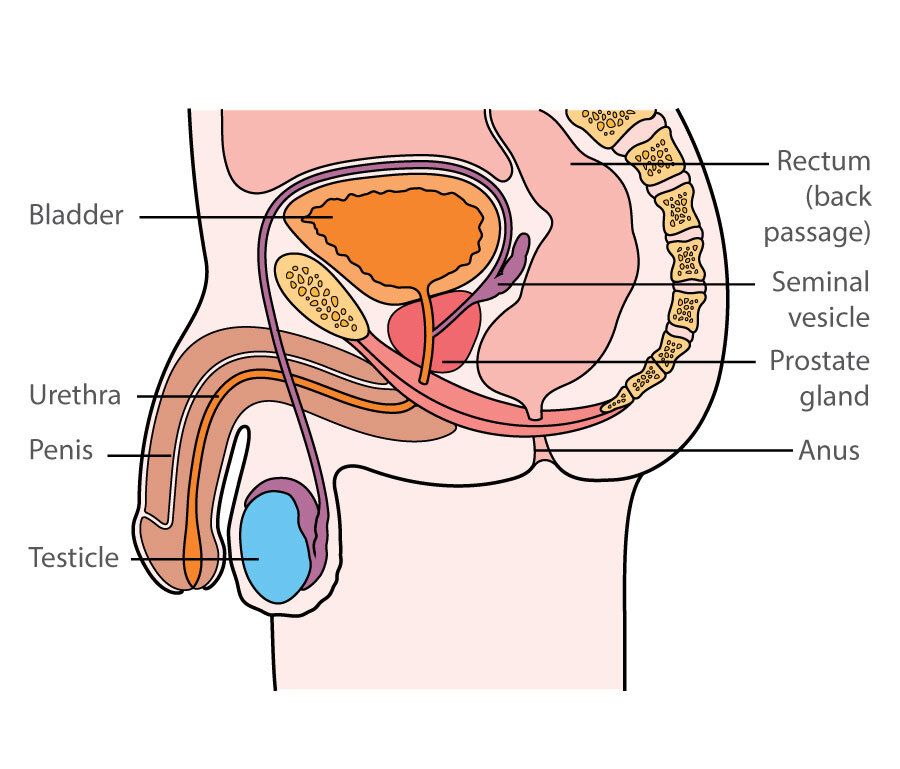


HoLEP at Urology Clinics Manchester
Around 3.2 million men in the UK are affected every day by urinary issues connected to the condition BPH, or benign enlargement of the prostate.
Mr Matthew Liew from Urology Clinics Manchester has been treating this condition using a surgical technique called HoLEP (Holmium Laser Enucleation of the Prostate). This is considered by many to be the ‘gold standard technique’ for treating prostates of all sizes. Mr Liew is the first urologist in Greater Manchester to use this technique.
NICE (the National Institute for Health and Clinical Excellence) recommends HoLEP surgery for treatment of large prostates, with the main advantages being that patients will be treated as a day case or have an overnight hospital stay and the procedure can be performed in men who have bleeding disorders or are on blood thinners.
Mr Liew's passion for setting the service is offering personalised and quick access to patients, especially those who are fitted with long term catheters. Over 98% of men are now catheter free after having HoLEP surgery for urinary retention, in comparison to around 85% for patients who undergo conventional prostate surgery.
Find out more about HoLEP below.
HoLEP Introduction
Holmium Laser Enucleation of the Prostate, otherwise known as HoLEP, is a surgical technique available for the treatment of urinary symptoms due to benign enlargement of the prostate (BPH).
It is the only laser technique recommended by NICE (the National Institute for Health and Clinical Excellence) for the treatment of BPH in the UK and is recommended for men with prostates of any size.
History
HoLEP was developed in the 1990’s. There are a large number of publications that support it as a new “Gold Standard” for treating BPH including a recent article: CJU - Article Abstract: (canjurol.com).
HoLEP has been available for WWL NHS patients since 2018 and is now exclusively available for private patients at Spire Manchester Hospital. These are the only centre performing this in Greater Manchester, Yorkshire and East Cheshire. As such, they have been a regional referral centre for patients from these areas.

Advantages of HoLEP
HoLEP was developed to improve the effectiveness, safety and durability of surgery for BPH. The main advantages of HoLEP over Transurethral Resection of the Prostate (TURP) which has been in use for the past 50 years include:
- More tissue removed
- Suitable for men with prostates of any size
- Can be used in men who have bleeding disorders or are on blood thinners (eg. Aspirin, clopidogrel and warfarin)
*Image: Male reproductive system www.macmillan.org.uk
Where is the Prostate and what does it do?
Unless affected by BPH the prostate is a walnut sized gland. It is only found in men and is a solid organ with a hollow channel running through it’s centre that is situated between the bladder and the urethra tube.
Urine travels from the bladder through the channel in the prostate and into the urethra when urinating. The prostate is tiny in childhood, grows during puberty and is the only organ that continues to grow throughout life. It is this growth later in life that can cause urinary problems. The prostate produces some of the fluid in semen. Men can live a perfectly healthy life if part or even all of the prostate is removed surgically.
Why are urinary symptoms (waterworks problems) important in men?
Urinary symptoms are the most common and bothersome symptoms affecting men beyond middle age.
They may indicate a serious underlying problem and are therefore important to inform your doctor about. There are a number of potential causes for urinary symptoms in men but by far the most common is Benign Prostatic Hyperplasia (BPH).

BPH symptoms
BPH symptoms can be divided into those caused directly by urethral obstruction and those due to secondary changes in the bladder.
click to download a copy.
What symptoms can be caused by BPH
- BPH leads to a physical growth of the prostate which may compress the prostate channel causing the urinary stream to slow, an intermittent flow (stopping and starting during urination), and straining to begin urination.
- After a while the bladder tries to compensate for the prostate blockage by becoming muscular and more powerful. This leads to the bladder becoming “unstable” with the bladder muscle contracting more frequently and forcefully than previously. This can increase the number of times you pass urine day and night and cause urgency (a sensation of having to rush to the toilet to pass urine at times).
- Sometimes as the prostate grows it can cause blood to appear in the urine.
- If the prostate blockage prevents the bladder from emptying properly, there is an increased risk of developing urinary infections, and forming bladder stones in the pool of stagnant urine in the bladder. Rarely, if the bladder is always full, back pressure can be transmitted up to the kidneys and this can cause kidney failure.
- In men who have a degree of prostate obstruction there may be a sudden inability to pass urine. This leads to the very painful complication of urinary retention which is treated initially by placement of a urethral catheter. In most men who experience painful urinary retention it is appropriate to consider surgery to allow successful removal of the catheter and to prevent retention from occurring again in future.
What common tests are performed to identify urinary symptoms due to BPH?
The main purpose of tests done to investigate men with urinary symptoms are to:
- Rule out cancer.
This is done by testing a urine sample, performing a blood test (Prostate Specific Antigen- PSA), and examining the prostate by rectal examination. - Look for evidence of prostate obstruction.
This is done by measuring a urine flow test and checking how well the bladder has emptied by scanning it soon after passing urine.
What are the treatment options for urinary symptoms due to BPH?
- Lifestyle changes
For men with minimal urinary symptoms the impact of these symptoms on their lives can be minimised by decreasing alcohol and caffeine intake and reducing fluid intake in the evening. - Medical treatment
Two types of tablets are available for treating BPH:
- Alpha blockers relax the muscle in the prostate and bladder neck to help widen the prostate channel when urinating.
- 5-alpha reductase inhibitors shrink the prostate.
- Some plant extracts such as saw palmetto are also favoured by some men and can improve urinary symptoms.
3. Surgical treatment
For men whose urinary symptoms are a nuisance/impair quality of life, and who either:
- Don’t like to be on longterm medication
- Have side effects from the medication
- Don’t respond to the medication
- Are bleeding from their prostate repeatedly
- Have urinary infections due to their prostate
- Have bladder stones
- Have urinary retention
- Have kidney failure due to their prostate
- Surgery (HoLEP or TURP) may be an appropriate treatment.
Private Patients FAQ's
When are operating lists available?
We can offer operating lists at Spire Manchester Hospital for private patients.
What are the advantages of having my HoLEP done privately at Spire Manchester Hospital?
Our highly skilled team will take care of you from the time that you decide to proceed with surgery until the time you are discharged from the urology service at your final clinic visit.
For men with complex medical problems Spire Manchester Hospital offers the security of high quality comprehensive medical support if required.
What are the costs involved?
At Spire Manchester Hospital we are able to offer an extremely competitive HoLEP package price for those who are paying their own fees. We are also able to offer HoLEP to those who have medical insurance.
How soon can I get an appointment?
Waiting times for private HoLEP at Spire Manchester Hospital can be within weeks.
Will I have a room to myself?
All efforts are made to allocate single rooms to private patients, however this cannot be guaranteed as bed allocation is dependent on clinical priority and availability.
How do I arrange private HoLEP surgery at Spire Manchester Hospital?
If you live in the UK or Ireland we require either a GP or urologist referral letter with details of your PSA (if you do not have a catheter), rectal examination and dipstick urine test results. We also need a list of your current medications and a summary of your medical history. Please print the International Prostate Symptom Score, fill it out according to the instructions and bring this with you to your first appointment. If you have seen a urologist previously it would be helpful if you could provide your flow rate and bladder scan (post void residual volume) measurements as well as your estimated prostate volume.
Please send referral letters and other information to: enquiries@mmsecretaries.co.uk
Mr Liew will assess the information you have submitted and respond to your enquiry. If deemed suitable a clinic appointment will be made to discuss HoLEP surgery and to arrange preassessment tests. A date for surgery will be booked and the Spire Manchester Hospital Office will arrange payment and admission details.
The usual length of stay (in 90% of men) is 1 night. If travelling from more than 2 hours drive away it is recommended that arrangements are made to spend 2 days in Spire Manchester Hospital after HoLEP before travelling home. A clinic follow up is booked 3 months after surgery.
HoLEP Specialist at Urology Clinics Manchester
Meet the team of HoLEP specialists at Urology Clinics Manchester, who are leaders within their field and here to help you.







